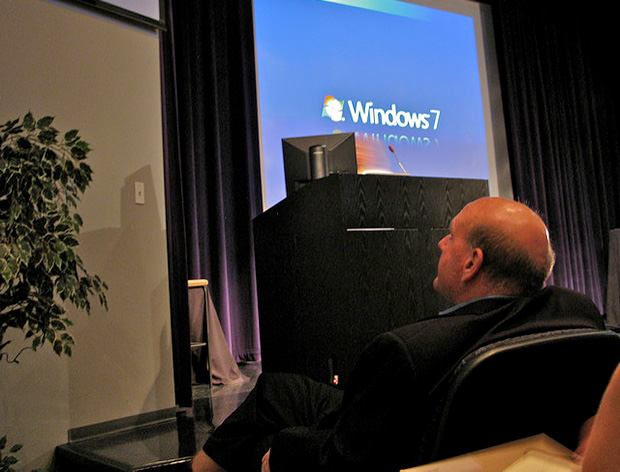Major OEMs Can No Longer Sell Windows 7 Or Windows 8.1 PCs Starting November 1st
If you don't give a flying flip about Windows 10 but need a new PC, time is running out to purchase a system that's still rocking Windows 7. Same goes for Windows 8.1, though if you're not a fan of Windows 10, you're probably not real keen on Windows 8.1 either. In any event, big name OEMs (Original Equipment Manufactures) will no longer be allowed to sell Windows 7 and Windows 8.1 machines once November rolls around.
October 31, 2016 is what Microsoft refers to as the "End of sales" date for both legacy operating systems that come pre-installed on systems. So beginning November 1, the only version of Windows that retailers and bulk OEMs such as Dell, Toshiba, Lenovo, and HP will be allowed to ship on systems is Windows 10, even if a customer requests an earlier version (in most cases—more on that in a moment).
That represents a two-year extension on the normal sales life cycle for PCs running an earlier build, though this will be the first time since Windows XP that OEMs will have their hands tied in such a manner. From Windows Vista on up to Windows 8.1, OEMs had always been allowed to sell systems with a previous generation of Windows installed. So throughout Windows Vista's lifetime, OEMs could sell Windows XP PCs, and throughout Windows 7's lifetime, buyers could opt for Windows Vista (if they wanted to).
Microsoft has been especially aggressive in getting as many users to adopt Windows 10 as it can. In this case, by disallowing OEMs to sell systems with previous versions of Windows installed, it should help reduce the level of fragmentation that's existed throughout the years.
That said, there will be some instances where Windows 7 and Windows 8.1 systems are sold beyond the deadline. There's a list of exceptions to the deadline, such as being able to sell existing inventory and businesses taking advantage of downgrade rights (Windows 10 Pro PCs can be downgraded to Windows 8.1 Pro or Windows 7 Professional). A few other exceptions exist, but by and large, you won't see OEMs pushing very many Windows 7/8.1 PCs compared to Windows 10 once November arrives.
October 31, 2016 is what Microsoft refers to as the "End of sales" date for both legacy operating systems that come pre-installed on systems. So beginning November 1, the only version of Windows that retailers and bulk OEMs such as Dell, Toshiba, Lenovo, and HP will be allowed to ship on systems is Windows 10, even if a customer requests an earlier version (in most cases—more on that in a moment).
That represents a two-year extension on the normal sales life cycle for PCs running an earlier build, though this will be the first time since Windows XP that OEMs will have their hands tied in such a manner. From Windows Vista on up to Windows 8.1, OEMs had always been allowed to sell systems with a previous generation of Windows installed. So throughout Windows Vista's lifetime, OEMs could sell Windows XP PCs, and throughout Windows 7's lifetime, buyers could opt for Windows Vista (if they wanted to).
Microsoft has been especially aggressive in getting as many users to adopt Windows 10 as it can. In this case, by disallowing OEMs to sell systems with previous versions of Windows installed, it should help reduce the level of fragmentation that's existed throughout the years.
That said, there will be some instances where Windows 7 and Windows 8.1 systems are sold beyond the deadline. There's a list of exceptions to the deadline, such as being able to sell existing inventory and businesses taking advantage of downgrade rights (Windows 10 Pro PCs can be downgraded to Windows 8.1 Pro or Windows 7 Professional). A few other exceptions exist, but by and large, you won't see OEMs pushing very many Windows 7/8.1 PCs compared to Windows 10 once November arrives.


